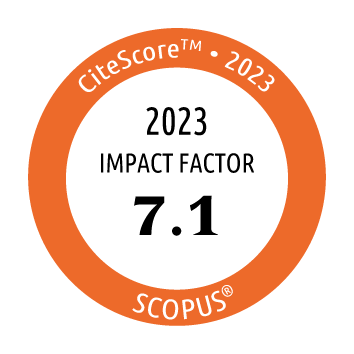Return to content in this issue
Spanish Consensus on the Management of Chronic Rhinosinusitis With Nasal Polyps (POLIposis NAsal/POLINA 2.0)
Alobid I1,2,3,4,5, Colás C6,7,8, Castillo JA4,9, Arismendi E4,5,10, del Cuvillo A11, Gómez-Outes A12, Sastre J5,13,14, Mullol J4,5,15; On behalf of the POLINA group
1Rhinology and Skull Base Unit, Department of Otorhinolaryngology, Hospital Clinic, Barcelona, Spain
2Universitat de Barcelona, Barcelona, Spain
3Unidad Alergo Rino, Centro Médico Teknon, Barcelona, Spain
4Clinical and Experimental Respiratory Immunoallergy, Institute of Biomedical Research ‘August Pi i Sunyer’ (IDIBAPS), Spain
5Network of Biomedical Research in Respiratory Diseases (CIBERES), Health Institute Carlos III, Spain
6Allergy Department, Hospital Clínico Universitario “Lozano Blesa”, Zaragoza, Spain
7Instituto de Investigación Sanitaria de Aragón, Zaragoza, Spain
8Facultad de Medicina, Universidad de Zaragoza, Zaragoza, Spain
9Pulmonology Department, Hospital Universitari Dexeus, Barcelona, Spain
10Pulmonology Department, Hospital Clínic, Barcelona, Spain
11Rhinology and Asthma Unit, Department of Otorhinolaryngology, Jerez University Hospital, Jerez, Spain
12Division of Pharmacology and Clinical Drug Evaluation, Medicines for Human Use, Agencia Española de Medicamentos y Productos Sanitarios, Madrid, Spain
13Allergy department, Fundación Jiménez Diaz, Madrid, Spain
14Universidad Autónoma de Madrid, Madrid, Spain
15Rhinology Unit and Smell Clinic, Department of Otorhinolaryngology, Hospital Clinic, Barcelona, Spain
J Investig Allergol Clin Immunol 2023; Vol 33(5)
: 317-331
doi: 10.18176/jiaci.0910
Chronic rhinosinusitis with nasal polyps (CRSwNP) is a highly prevalent and burdensome disease for both individuals and health systems. Its management involves many specialties, including otorhinolaryngology, allergology, pulmonology, primary care, pharmacy, and pediatrics. A multidisciplinary approach and the participation of the patient in decision-making are essential, both for diagnosis and for therapy. The authors of the consensus aim to translate current knowledge into an easy-to-read practical guide and emphasize those aspects requiring further discussion or with unmet needs owing to the lack of appropriate scientific evidence. An iterative approach for the development of an evidence-based systematic review with recommendations was followed using a standard quality assessment approach (Scottish Intercollegiate Guidelines Network [SIGN] and National Institute for Health and Care Excellence [NICE]). The guideline was critically evaluated using the Appraisal of Guidelines for Research and Evaluation (AGREE II) and Recommendation Excellence (AGREE REX) instruments. Consequently, POLINA has been considered a high-quality guideline by an independent agency. The POLINA consensus provides new definitions of control, therapeutic management (including surgery and evaluation of severity), indications for use of biologics, and response. Finally, this guideline focuses on unmet research needs in CRSwNP.
Key words: Asthma, Biologics, Chronic rhinosinusitis, Corticosteroids, CRSwNP, Endoscopic sinus surgery, Guideline, Nasal polyps, N-ERD, Type 2 inflammation
| Title | Type | Size | |
|---|---|---|---|
 |
doi10.18176_jiaci.0910_supplemental-materials_1.pdf | 205.37 Kb |




